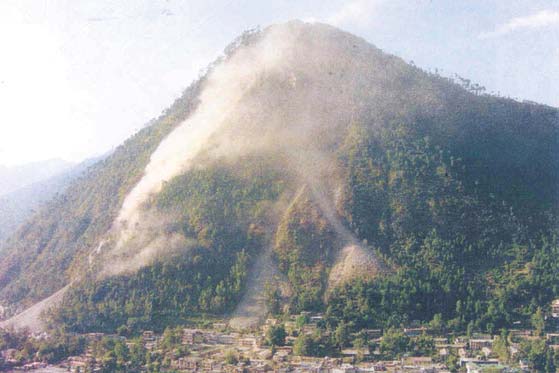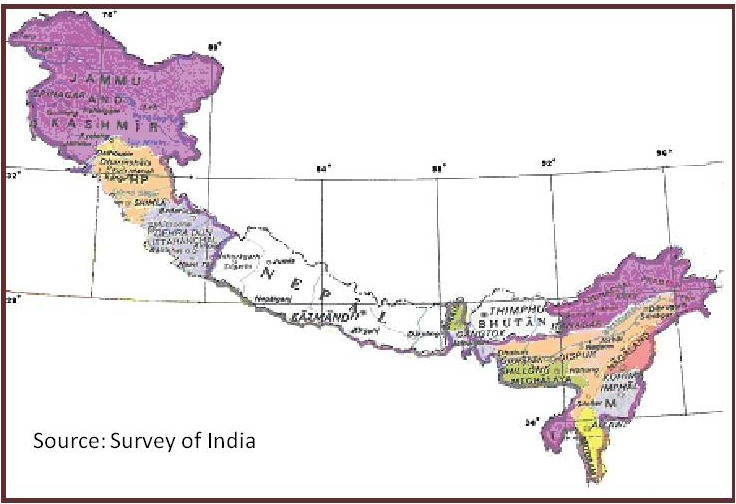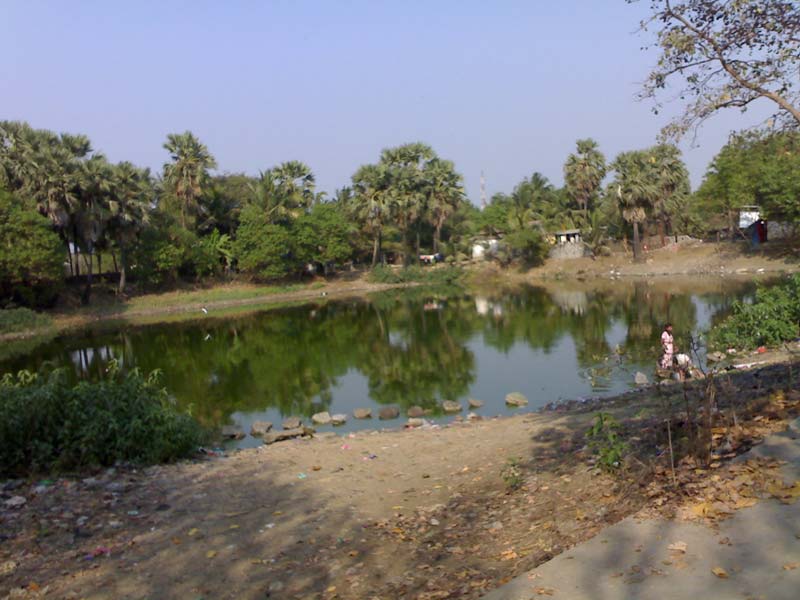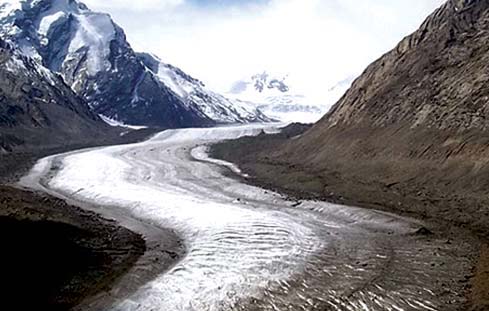Ecology and Environment
Assam’s strategy and action plan on climate change - Recommendations - First draft - ASTEC (2011)
Posted on 07 Nov, 2011 11:20 AMThis report by the Assam Science Technology & Environment Council (ASTEC) contains the compiled recommendation of three consultative workshops organized in Assam University, Gauhati University and
Water poverty in urban India - A study of major cities - A seminar paper - Tata Institute of Social Sciences
Posted on 05 Nov, 2011 12:02 PMThis seminar paper submitted for the UGC Summer Programme at the Jamia Millia Islamia University describes the findings of a study that explored the quantity of water used in domestic households vis-à-vis the recommended quantity of water consumption in seven major Indian cities, n
Advancing development - Towards sustainable livelihoods - Madurai Symposium - DHAN Foundation - September 14-18 ( 2011)
Posted on 04 Nov, 2011 08:47 AMThe Madurai Symposium organised by the
A course on policies, politics & practices of environmental management, CSE, December 19, 2011 – January 6, 2012, New Delhi
Posted on 04 Nov, 2011 08:22 AMOrganizers: Centre for Science and Environment (CSE) & Engineers Without Borders (EWB)
Venue: Anil Agarwal Green College, 38, Tughlakabad Institutional Area, New Delhi–110062


The Centre for Science and Environment (CSE) is a public interest research and advocacy organisation based in New Delhi. CSE researches into, lobbies for and communicates the urgency of development that is both sustainable and equitable.
Engineers Without Borders (EWB) is an international development organisation that removes barriers to development through engineering. Its programmes provide opportunities for young people to learn about technology's role in tackling poverty. Supported by the EWB-UK community, its members can work on projects around the globe.
Jeevan Vidhya Workshop, December 4 – 9, 2011, Sirsi, Karnataka
Posted on 03 Nov, 2011 08:09 PMOrganizer: Centre for Holistic Learning, Jeevanshala Trust
Venue: Sirsi, Karnataka

Jeevanshala Trust like to think of ourselves as constituting an open learning community/network for mature learners. The programs we conduct are for 'grown-ups', and the content of the programs is of a sort that is not to be found in conventional institutions of learning...
We are a motley group of people, linked together by our vision of wholesome meaningful lives for everyone, and by our advocacy of such living...
Management of landslides and snow avalanches - National disaster management guidelines by National Disaster Management Authority
Posted on 02 Nov, 2011 08:15 AM These guidelines by the National Disaster Management Authority (NDMA) on management of landslides and snow avalanches aim to reduce the enormous destructive potential of landslides and minimize the consequential losses by institutionalizing the landslide hazard mitigation efforts.
These guidelines by the National Disaster Management Authority (NDMA) on management of landslides and snow avalanches aim to reduce the enormous destructive potential of landslides and minimize the consequential losses by institutionalizing the landslide hazard mitigation efforts.
It is necessary that the hazard must first be recognized, the risk analyzed and an appropriate strategy developed at the national level to mitigate its impact. To achieve this objective, the NDMA initiated a series of consultations for drafting the national guidelines on landslides and snow avalanches to guide the activities envisaged for mitigating the risk emanating from landslides at all levels. The guidelines include regulatory and non-regulatory frameworks with defined time schedules for all activities. It is envisioned that all national and state disaster management plans and policies for landslides will be formulated and implemented keeping in view the overall framework of the guidelines.
Problems of hill states and hill areas and ways to ensure that they do not suffer in any way because of their peculiarities - Report of the Task Force - Planning Commission
Posted on 01 Nov, 2011 09:37 PMThis report by the Task Force, constituted by the Planning Commission, Government of India in April, 2008, is an outcome of the need expressed by the Prime Minister of India for a fresh analysis of the problems of the hill states and hill areas of the country in a manner that suggests that these areas do not suffer in any way on account of their peculiarities.
Opinions have been expressed that the pace of development of the Indian Himalayan Region (IHR) has been slow when compared to the rest of the country. At the same time, its fragile nature and difficulty of taking up conventional development initiatives has not been appreciated. In this report, arguments have been presented recommending reshaping of policies to bring in the “mountain perspective” for the IHR, in the national planning. Emphasis has also been laid on developing norms for good governance and for harnessing social capital at the grassroots.

Lakes in Mumbai – A draft report by WWF India
Posted on 01 Nov, 2011 08:59 PM This draft report on the study of lakes by the World Wildlife Fund for Nature (India) documents the physical condition of the lakes in Mumbai. Apart from the three lakes - Tulsi, Powai and Vihar that used to provide water to Mumbai residents, there are many lakes in the Bombay Municipal Corporation jurisdiction that are either polluted by human sewage or industrial effluents and have remained neglected with increasing urbanization.
This draft report on the study of lakes by the World Wildlife Fund for Nature (India) documents the physical condition of the lakes in Mumbai. Apart from the three lakes - Tulsi, Powai and Vihar that used to provide water to Mumbai residents, there are many lakes in the Bombay Municipal Corporation jurisdiction that are either polluted by human sewage or industrial effluents and have remained neglected with increasing urbanization.
There is very little to no data available on the existence of lakes of Mumbai. Several RTI’s to the government bodies also revealed that there was a lacuna in terms of the availability of the data; as a result most of the water bodies are easily exploited. Under this study the baseline data was prepared with the help of Google Earth website. The areas appearing to be lakes were marked on the Google Earth Images. These were verified by the field staff through onsite visits. The survey was conducted during September and October, 2008 and March, 2009. The study considers only the fresh water lakes which were accessible and saline water impoundments have not been considered.
Himalayan glaciers: A state-of-art review of glacial studies, glacial retreat and climate change – A MoEF discussion paper
Posted on 30 Oct, 2011 09:02 PM The MoEF discussion paper on Himalayan glaciers studies the phenomenon of glaciations and glacier dynamics, a phenomenon that has attained significant attention in recent years, on account of the general belief that global warming and climate change is leading to fast degeneration of glaciers in the Himalayas. It is argued that this would, in the long run, have an adverse effect on the environment, climate and the water.
The MoEF discussion paper on Himalayan glaciers studies the phenomenon of glaciations and glacier dynamics, a phenomenon that has attained significant attention in recent years, on account of the general belief that global warming and climate change is leading to fast degeneration of glaciers in the Himalayas. It is argued that this would, in the long run, have an adverse effect on the environment, climate and the water.
Alternative national water policy - A critique - Economic and Political Weekly
Posted on 30 Oct, 2011 04:04 PMThis article published in the discussion section of the Economic and Political Weekly is a critique of the National Water Policy: An alternative draft for consideration, proposed by Ramaswamy Iyer, published in the Economic and Political Weekly, June 25th 2011.




